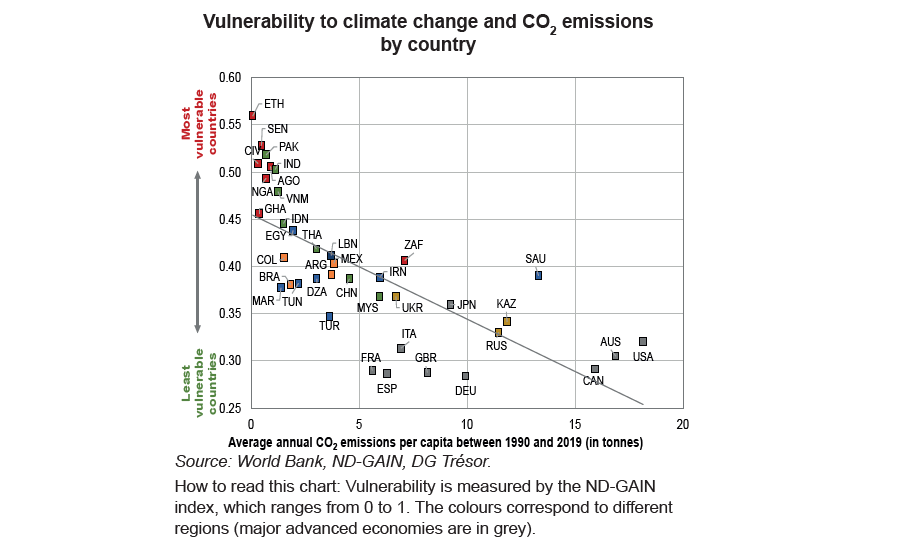Emerging Economies and Climate Change
Despite being less responsible for climate change, emerging countries are more vulnerable to its effects than their advanced counterparts. Countries located in tropical areas will be more impacted by the physical effects of climate change, while the sectoral structure of African and Asian countries is set to amplify their economic sensitivity. Adaptive capacity varies from country to country and international cooperation is critical to reducing the impacts of climate change.
The economic effects of climate change are becoming increasingly consequential as the pace of long-term environmental changes accelerates and extreme weather events increase in frequency and intensity. Vulnerability to climate change has become central to identifying and assessing potential risks to the growth trajectories of emerging economies. A country may be considered vulnerable due to its physical exposure to climate change, the sectoral composition of its economy or its adaptive capacity.
Most of the major emerging economies are low contributors to global warming, yet they are much more vulnerable to its consequences than advanced economies, albeit to differing degrees of exposure (see chart on this page). The countries most exposed to environmental changes (rising sea levels, desertification) and extreme weather events are those in tropical areas in sub-Saharan Africa, Asia and Latin America.
The sectoral and geographic structure of some emerging economies increases their vulnerability to climate change. Those particularly dependent on rain-fed agriculture are expected to suffer lower crop yields (sub-Saharan Africa and Southern Asia), whereas countries where most of the economic activity is in coastal regions will have to contend with rising sea levels (Southeast Asia). Arid and semi-arid regions (North Africa and the Middle East) could see disastrous consequences from water stress.
Not all emerging economies have the same adaptive capacity to cope with these changes, and the variation between them is closely tied to their level of development. The lack of infrastructure or medical professionals, for example, could significantly exacerbate the consequences of climate change in numerous countries. International cooperation is both needed and warranted to reduce the impacts of climate change on these economies and the associated side effects.
